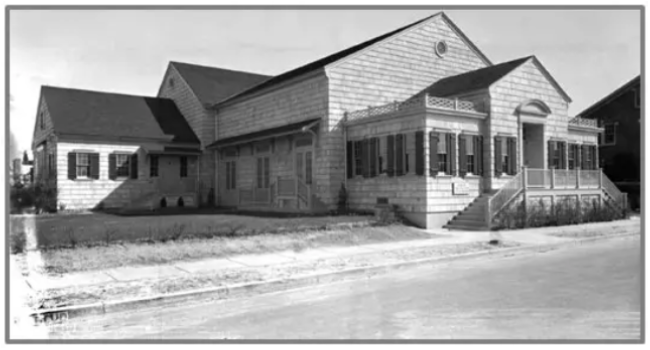Written in 1947 and submitted for publication in Teen, The Magazine for Teenagers. Edith and Robert were living at 6510 Wakeforest in Houston, Texas at this time.
“Houston teenagers play one of the most important roles in the Little Theatre,” said Ralph Mead, director of the Little Theatre in Houston. It is not as glamorous a role as some, and quite unseen by the public. But for six weeks before every production, these young people have their hands into everything, including props, paint, scenery, wardrobe, make-up, sound effects, and many other backstage ‘dramas’.
The little Theatre of Houston was established in the fall of 1925 when a group of interested persons held a meeting at the home of Jackson Purdy, with the purpose of organizing a Little Theatre group. The only member of that original group still active in the Theatre is Ruby Martin who is a charter member of the Theatre Guild today. In December of 1925 the Little Theatre’s first play, “The Prodigal Son” was presented.

The group produced their plays wherever they could find a place those first few years of existence, having no stage of their own. Four years later, in 1930, the late Kate Power Farish gave a dinner party at which time she listed the names of persons who promised enough aid to buy the present Little Theatre building on Chelsea. Recently, the Theatre Guild named their library in honor of her name.
Opening the Little Theatre’s twenty-second season on October 14, was “The Unknown Lover” by Anita “Angna” Enters, which ran for twelve nights. The play was highlighted by the arrival of the author who came for the new play’s premier, and also to assist in directing her new comedy in which she personally taught a group of teenage girls a humorous dance that was incidental to one of the scenes.
Every Saturday afternoon teenagers congregate at the ‘shack’ or workshop, some hammering away, some using paint brushes, and others crawling around dusty props. In fact, the whole place is swarming with paint-stained blue jeans and high school jab-gab. Combine this with ‘on the house’ cokes and an occasional sandwich party, and you will have witnessed a typical Saturday afternoon at the Little Theatre. Incidentally, there is quite a friendly rivalry between Houston schools, each trying to outdo the other at the Theatre.
Another teen project is out front work such as ushering, serving punch and handing out the programs. One night a high school girl who was ushering, was ‘found’ for the next play’s leading role! Girls dress in their formals and boys are in their best attire; no one with a trace of yesterday’s paint brushed hair or grimy hands.
The Little Theatre group has an open membership. It is self-supporting and no dues are collected from members. A public tryout is held six weeks before every production. This always falls on the first Sunday following opening night of the newly presented play. Anyone participating in the tryout or taking part in volunteer work is considered an active member. Out of ten plays produced last year, five hundred persons, composed chiefly of Houston teenagers, did volunteer work (not counting players). From this figure, one can understand the important role these students play in Little Theatre productions!
This is Mead’s fourth season with the Theatre, which, during this time has enlarged eighteen times from its former size. An audience of 28,000 attended the plays last season.
One-fourth of the two hundred tryouts for “The Unknown Lover” were teenagers! This fact alone discloses the strong interest in theatre work by this age group. In casting for a play, director Mead tries to keep a balance between the experienced and the untrained person, still maintaining a high standard by using the well-established actor.
Several celebrities of New York and Hollywood got their start as teenagers in Houston’s Little Theatre, among the best known, James Craig. Only this fall, Billy Herman, a teenager was accepted to enter a prominent theatrical school in New York as a second-year student. Billy had a well-rounded background from the variety of experience he acquired in the Little Theatre last season when he worked in some way on every single show. Entrance requirements of the two-year school make it impossible for an unqualified and inexperienced person to be accepted for admission.
The Little Theatre is run by professional staff and is organized the same as a professional playhouse. Because of this, the novice has opportunity to see exactly how a professional theatre is run, thus gaining valuable experience that can be applied toward a delightful hobby or valuable career.
